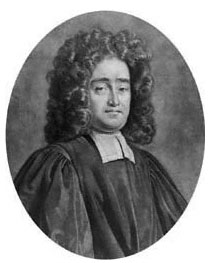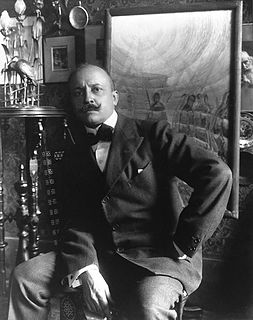A Quote by Jonathan Swift
My Lawyer being practiced almost from his Cradle in defending Falsehood; is quite out of his Element when he would be an Advocate for Justice, which as an Office unnatural, he always attempts with great Awkwardness if not with Ill-will.
Related Quotes
Ajamu Baraka is a human rights advocate and an international human rights advocate, who's been defending racial justice, economic justice, worker justice, indigenous justice, and justice for black and brown people all over the world, and in the United States has been helping to lead the charge against the death penalty here, and is an extremely eloquent and empowering person. And one of the great things about running with him is that we speak to all of America.
Men will imitate and admire his unmoved firmness, his inflexible conscience for the right; and yet his gentleness, as tender as a woman's, his moderation of spirit, which not all the heat of party could inflame, nor all the jars and disturbances of this country shake out of its place: I swear you to an emulation of his justice, his moderation, and his mercy.
When will you disembarrass yourselves of the lymphatic ideology of that deplorable Ruskin, which I would like to cover with so much ridicule that you would never forget it? With his morbid dream of primitive and rustic life, with his nostalgia for Homeric cheeses and legendary wool-spinners, with his hatred for the machine, steam power, and electricity, that maniac of antique simplicity is like a man who, after having reached full physical maturity, still wants to sleep in his cradle and feed himself at the breast of his decrepit old nurse in order to recover his thoughtless infancy.
Many of the ugly pages of American history have been obscured and forgotten....America owes a debt of justice which it has only begun to pay. If it loses the will to finish or slackens in its determination, history will recall its crimes and the country that would be great will lack the most indispensable element of greatness-justice.
Modern man lives isolated in his artificial environment, not because the artificial is evil as such, but because of his lack of comprehension of the forces which make it work- of the principles which relate his gadgets to the forces of nature, to the universal order. It is not central heating which makes his existence 'unnatural,' but his refusal to take an interest in the principles behind it. By being entirely dependent on science, yet closing his mind to it, he leads the life of an urban barbarian.
Let no one imagine that he will lose anything of human dignity by this voluntary sell-out of his all to his God. He does not by this degrade himself as a man; rather he finds his right place of high honor as one made in the image of his Creator. His deep disgrace lay in his moral derangement, his unnatural usurpation of the place of God. His honor will be proved by restoring again that stolen throne. In exalting God over all, he finds his own highest honor upheld.
Business in a certain sort of men is a mark of understanding, and they are honored for it. Their souls seek repose in agitation, as children do by being rocked in a cradle. They may pronounce themselves as serviceable to their friends as troublesome to themselves. No one distributes his money to others, but every one therein distributes his time and his life. There is nothing of which we are so prodigal as of those two things, of which to be thrifty would be both commendable and useful.
For a lawyer to do less than his utmost is, I strongly feel, a betrayal of his client. Though in criminal trials one tends to focus on the defense attorney and his client the accused, the prosecutor is also a lawyer, and he too has a client: the People. And the People are equally entitled to their day in court, to a fair and impartial trial, and to justice.
Many of the ugly pages of American history have been obscured and forgotten. A society is always eager to cover misdeeds with a cloak of forgetfulness, but no society can fully repress an ugly past when the ravages persist into the present. America owes a debt of justice which it has only begun to pay. If it loses the will to finish or slackens in its determination, history will recall its crimes and the country that would be great will lack the most indispensable element of greatness — justice.
Step back in time; look closely at the child in the very arms of his mother; see the external world reflected for the first time in the yet unclear mirror of his understanding; study the first examples which strike his eyes; listen to the first words which arouse within him the slumbering power of thought; watch the first struggles which he has to undergo; only then will you comprehend the source of his prejudices, the habits, and the passions which are to rule his life. The entire man, so to speak, comes fully formed in the wrappings of his cradle.
Not one of the orthodox ministers dare preach what he thinks if he knows a majority of his congregation think otherwise. He knows that every member of his church stands guard over his brain with a creed, like a club, in his hand. He knows that he is not expected to search after the truth, but that he is employed to defend the creed. Every pulpit is a pillory, in which stands a hired culprit, defending the justice of his own imprisonment.
There is no doubt that truth is to falsehood as light is to darkness; and so excellent a thing is truth that even when it touches humble and lowly matters, it still incomparably exceeds the uncertainty and falsehood in which great and elevated discourses are clothed; because even if falsehood be the fifth element of our minds, notwithstanding this, truth is the supreme nourishment of the higher intellects.
I'd always thought that my awkwardness was a thin veil disguising the real me. The me that was funny and could write songs that touched people. The me that would one day find some beautiful, intelligent boy who'd recognize me as his soul mate. The me who was secretly pretty and stylish if only someone would lift the veil and see. But I was beginning to suspect that underneath the awkwardness there was just more awkwardness and not much else. And that would explain why I stood in a room full of people and felt like the loneliest girl in the world.




































